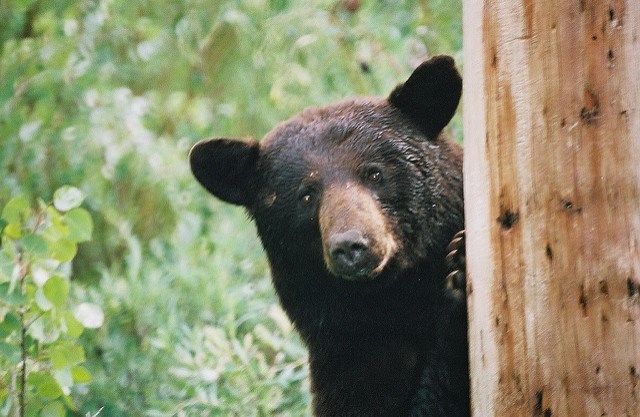By passing regulations restricting wildlife attractants, the Squamish-Lillooet Regional District has made the right move to protect bears and other animals in the area. In its most recent electoral area directors meeting, the regional district has passed Wildlife Attractant Bylaw No. 1551-2018.
While anti-attractant bylaws have existed in Squamish, this will be the first time such regulations are effective in some rural and unincorporated areas surrounding town and the broader SLRD area. Director Tony Rainbow of Electoral Area D, which encompasses the rural and unincorporated areas surrounding the District of Squamish, said the measure was in part a response to the death of a bear in Britannia Beach.
The Chief reported in June last year a “highly-habituated” bear was killed there. The young black bear was first captured in Squamish and brought to care in Langley. It was later released in the Sea to Sky Corridor. It was relocated again after making its way back to Squamish, but then showed up in Britannia Beach. While the animal was in Britannia, it was breaking into garbage cans, bird feeders and garages in search of food. Conservation officers eventually had to intervene after residents reported that it was breaking into a chicken coop and killing the birds inside.
While there is no silver bullet to solving problems with bears, the new bylaw will help prevent such incidents from happening.
For instance, coops, pens and beehives must be enclosed by electric fencing from here on out.
Obviously, trash must be secured as well.
While most residents in the area have been good about keeping attractants away from wildlife, unfortunately there have been enough people neglecting to do this.
It’s worth repeating that mother bears are teaching their young to eat garbage in Squamish and its surrounding areas.
This wouldn’t be happening if everyone did their part to make sure this source of food wasn’t available.
Rainbow said that in the coming weeks, he hopes to hold information sessions about what exactly the bylaw requires. It would be prudent for residents to attend. Details are expected to be posted at slrd.bc.ca.
If everything goes according to plan, he said, there will hopefully be a leniency period where bylaw officers issue educational documentation instead of penalties for infractions.
However, if push comes to shove, this bylaw does have teeth. While Rainbow said he hasn’t worked out everything with enforcement officers, the bylaw states that the maximum penalty is either a $2,000 fine, six months of jail, or both.
For some, this may seem to be a heavy price to pay, but the ongoing deaths of bears and other animals have left authorities with no choice.



